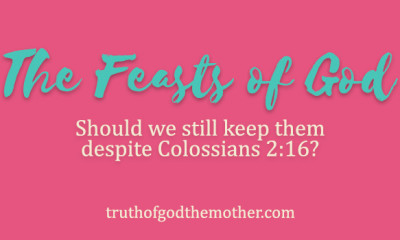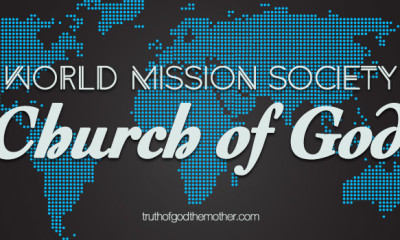Is Christmas Really Jesus’ Birthday?
Christmas: Unwrapped & Unveiled
Christmas is probably the biggest festival around the world. When Christmas season arrives, everyone gets into the holiday spirit. But why do people celebrate Christmas? What is behind this multi-billion dollar commercialized holiday? Is it really the birthday of Jesus Christ?
Christmas was one of my favorite holidays as a kid mainly because of the food, the partying and, of course, the gifts. But I don’t remember ever seeing any evidence that it was really the birthday of Jesus. And even though I was raised in a Catholic household, my parents never cared to take me to midnight mass…why?
- Early Christians did not celebrate Christmas because there is no Biblical evidence of Jesus’ birthday.
- After becoming secularized by the third century, the Roman church instituted Christmas to coincide with the already existing pagan festivals in December. The teachings of Christ were no longer kept in the church.
- Where did the 12 days of Christmas come from? Where did the Christmas tree come from? During mid-winter, Scandinavian norsemen celebrated Yule, the god of fertility. They burned a log and each spark was said to represent a pig or calf to be born in the spring. It usually took about 12 days for the log to completely burn.
- They also dragged an evergreen tree because it was the only plant that could make it through the winter.
- Why do people “deck the halls with boughs of holly?” Because of its origins, to deck the halls with boughs of holly essentially means to acknowledge the powers of the nature gods.
- In Germany, people celebrated the pagan god Oden. They believed that he flew through the night sky to observe the people and decide who would prosper or perish – who was naughty or nice.
- In Rome, there were three great festivals during the month of December. One of them was Saturnalia. Celebrated between December 17th and December 24th, this was the ancient Roman festival of Saturn, the god of agriculture. All the people indulged in pleasure, regardless of wealth or social position. And they offered sacrifices to Saturn.
- The second festival Romans celebrated to Saturn was Sagillaria. Celebrated at the end of December, people gave their children dolls to play.
- The third festival was Brumalia. This was the famous winter solstice celebrating the birth of the sun. Upper classes in Rome celebrated the winter solstice. During the whole month of December, courts were closed and any and all crimes were allowed. There was uncontrollable debauchery.
- During this time in pre-Christian Rome, people honored a number of other pagan gods including Dionysus, Attis and Baal.
- Christmas was outlawed in Early America because of its pagan roots. Knowing it was not a Biblical holiday, Puritans, at first, wanted nothing to do with it.
- December 25 is NOT the birthday of Jesus, but a day of pagan worship.
What about Santa Claus? Why do people hang mistletoes from doors? Check out the complete history through this compilation of documentaries. You will never see Christmas the same again.




Wow Christmas is definitely NOT biblical! I had suspicions that it wasn’t, but once I went to the WMSCOG my eyes were opened to the truth and I realized that it was pagan! Even non-Christians celebrate it! Do you need any more evidence than this? Amazing article! Keep up the good work.
Christmas is coming soon, and I found this article. This is so amazing. It’s not god’s feast but it’s pagan. I won’t celebrate Christmas from now on… I want to follow God, not the sun god.